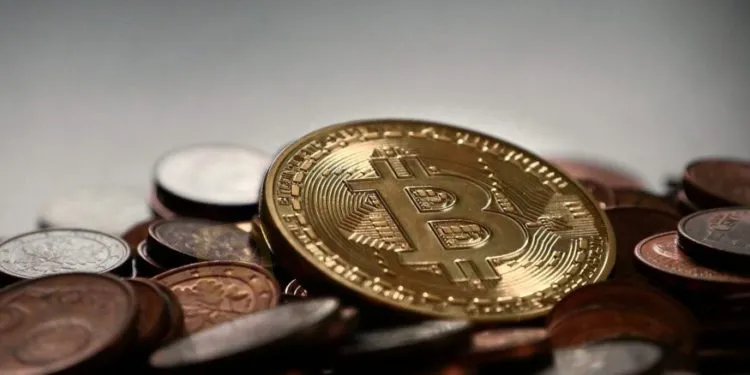简体中文
繁體中文
English
Pусский
日本語
ภาษาไทย
Tiếng Việt
Bahasa Indonesia
Español
हिन्दी
Filippiiniläinen
Français
Deutsch
Português
Türkçe
한국어
العربية
U.S. SEC rejects Grayscale’s spot bitcoin ETF
Abstract:The U.S. Securities and Exchange Commission on Wednesday said in a filing that it rejected a proposal to list a spot bitcoin exchange-traded fund by Grayscale, one of the world’s biggest digital asset managers, on Intercontinental Exchange Inc’s NYSE Arca exchange.

The U.S. securities regulator on Wednesday rejected a proposal to list a spot bitcoin exchange-traded fund (ETF) by Grayscale, one of the worlds biggest digital asset managers, on the NYSE Arca exchange.
Grayscale responded with a legal challenge to the decision, the latest in a series of rejections of proposals for U.S. listings of spot bitcoin ETFs over the past year.
The proposal to list the ETF did not meet the standard designed to prevent fraudulent and manipulative practices and protect investors and the public interest, the Securities and Exchange Commission (SEC) said in a filing https://www.sec.gov/rules/sro/nysearca/2022/34-95180.pdf.
Grayscale proposed creating the ETF as a conversion of its Grayscale Bitcoin Trust. Intercontinental Exchange Inc owns NYSE Arca.
The SEC said its disapproval did not rest on “an assessment of whether bitcoin, or blockchain technology more generally, has utility or value as an innovation or an investment.”
Grayscale said that in response it had filed a lawsuit against the regulator and would argue that the SEC had violated the Administrative Procedure Act and Securities Exchange Act.
In a statement it pointed to the SECs approval of ETFs based on bitcoin futures. “If regulators are comfortable with ETFs that hold derivatives of a given asset, they should logically be comfortable with ETFs that hold that same asset,” it said.
In rejecting more than a dozen proposals for spot bitcoin ETFs over the past year, the SEC has focused on a lack of surveillance-sharing agreements with a regulated market of significant size relating to the underlying assets.
The price of bitcoin, the largest digital currency, is down about 70% from its high of around $69,000 in November.
Other cryptocurrencies and crypto-related stocks have plunged in recent months as investors have dumped riskier assets in response to high inflation and policy tightening by major central banks.
Issuers of spot bitcoin ETFs rejected by the SEC in recent months have included Fidelity, SkyBridge and Valkyrie, all of which sought to provide easy exposure to the digital currency.

Disclaimer:
The views in this article only represent the author's personal views, and do not constitute investment advice on this platform. This platform does not guarantee the accuracy, completeness and timeliness of the information in the article, and will not be liable for any loss caused by the use of or reliance on the information in the article.
Read more

Investing Capital in Focus as Complaints on Withdrawal and Other Issues Mount
Explore this guide we have exposed Investing Capital, which has mounted concerns for traders by disallowing withdrawals and making them lose their hard-earned money.

4 Warning Signs That Indicate You May Get Scammed in Your Forex Investments
In this blog, we will share with you a guide telling you about the tactics fraudsters employ to dupe investors.

Global Brokers Vs. Indian Rules: Why They Struggle in India
RBI issued a warning last year against 75 forex brokers. Those brokers are globally popular and regulated in other countries, but they are banned in India. Only few brokers even have physical offices located in India. So, why do global brokers face so many challenges in entering the Indian market?

Aetos: A Closer Look at Its Licenses
With multiple regulatory entries and one license now revoked, Aetos stands as a broker requiring closer scrutiny from investors, particularly those prioritizing license scope and jurisdictional compliance.
WikiFX Broker
Latest News
Capital.com Strengthens UK FinTech Ties with Key Memberships
10-year Treasury yield ticks higher as investors eye jobs report
Elon Musk's xAI raises $10 billion in debt and equity as it steps up challenge to OpenAI
Crypto Craze Fizzling Out? Here is Why
Public companies bought more bitcoin than ETFs did for the third quarter in a row
Stock futures are flat after investors sell tech names to start the second half of 2025: Live updates
Social Trading Goes Mobile at M4Markets
ACY Securities Expands Crypto CFD Offering with 24/7 Trading Access
Revelation: Makeup Artist, Social Media Influencer Involved in INR 1.62 Cr Forex Trading Scam
European Central Bank's tightening cycle is done,' chief economist says
Currency Calculator


